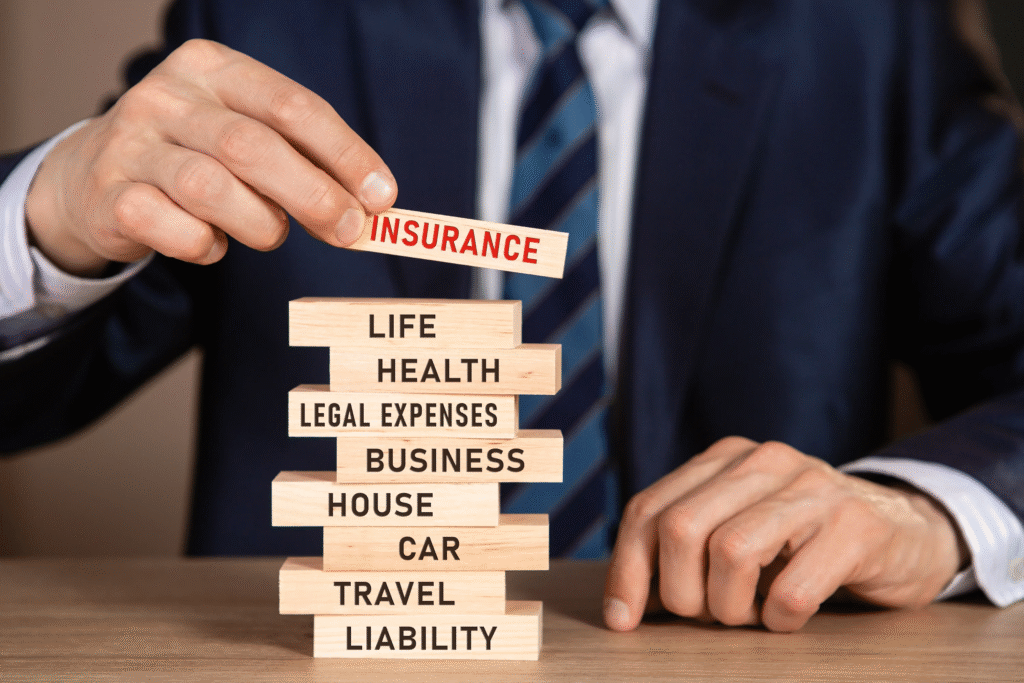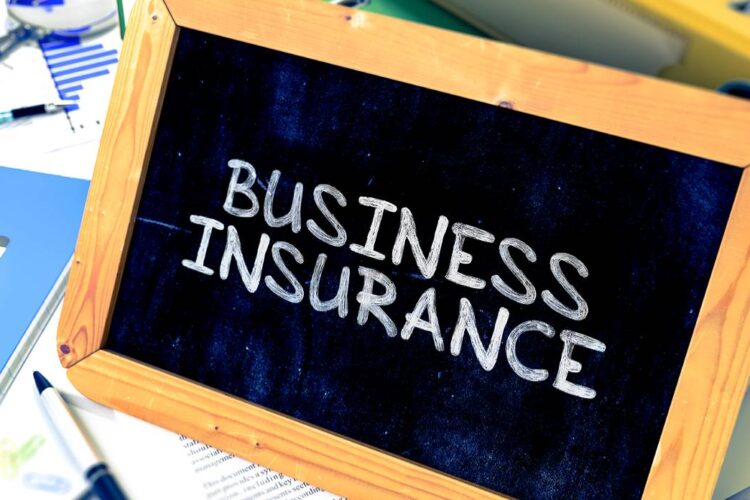Running a business involves managing many risks that could threaten your company’s stability, reputation, and even existence. Whether you are a startup or an established firm, investing in the right types of business insurance is essential for protecting your assets, employees, and future growth.
But with so many insurance policies available, how do you decide which types of business insurance your company really needs? This comprehensive guide will help you understand the most important types of business insurance, why they matter, and how to tailor coverage to your specific business risks.
Key Takeaways
- Business insurance protects your company from financial losses caused by accidents, lawsuits, or disasters.
- General liability and property insurance are fundamental for most businesses.
- Industry-specific risks often require specialized insurance, like professional liability or cyber liability.
- Workers’ compensation is legally required in most states for businesses with employees.
- Bundled policies like Business Owner’s Policies can simplify coverage for small businesses.
- Regularly review and update your insurance to match your business growth and changing risks.
- Consulting with an insurance agent or broker helps tailor coverage and get competitive quotes.
Why Business Insurance Matters

Every business faces risks, such as property damage, legal claims, employee injuries, or data breaches. Business insurance acts as a financial safety net, covering costs that could otherwise cripple or close your business. It helps safeguard your company’s assets, maintain cash flow, and build trust with customers and partners.
Without adequate insurance, a single lawsuit, accident, or disaster could result in devastating financial loss or bankruptcy.
Key Factors to Consider Before Choosing Business Insurance
Before diving into specific insurance types, consider these factors:
- Nature of Your Business: Different industries face unique risks. For example, a construction company needs different coverage than a tech startup.
- Number of Employees: Worker-related coverage like workers’ compensation becomes more important as your team grows.
- Physical Location: If you own or lease property, property insurance is vital. Some locations may require specific types of insurance.
- Legal Requirements: Some insurance policies, such as workers’ compensation or commercial auto insurance, may be mandated by law.
- Business Size and Revenue: Larger businesses may need higher coverage limits.
- Contractual Obligations: Some clients or partners require you to have certain insurance before doing business.
Types of Business Insurance Your Company Might Need
Here is an overview of the most common types of business insurance to consider:
1. General Liability Insurance
What It Covers:
General liability insurance protects your business against claims of bodily injury, property damage, and personal injury (like slander or libel) caused by your company’s operations, products, or services.
Why You Need It:
It is one of the most fundamental policies and is often required by landlords, clients, or partners. It covers legal defense costs and settlements if someone sues your business.
Example:
If a customer slips and falls in your store and sues, this insurance will cover medical bills and legal fees.
2. Property Insurance
What It Covers:
Property insurance covers damage to your business property—buildings, equipment, inventory, furniture—due to fire, theft, vandalism, or natural disasters.
Why You Need It:
If you own or lease physical space, protecting your property is essential. It can cover repairs or replacement costs and loss of income during repairs.
Example:
Your office catches fire, and property insurance helps rebuild and replace your equipment.
3. Workers’ Compensation Insurance
What It Covers:
Workers’ compensation provides medical benefits and wage replacement to employees injured or ill due to work-related incidents.
Why You Need It:
Most states require this insurance if you have employees. It protects you from lawsuits by injured workers and ensures your employees receive care.
Example:
An employee injures their back lifting heavy equipment; workers’ comp covers medical bills and part of their salary during recovery.
4. Professional Liability Insurance (Errors & Omissions)
What It Covers:
Professional liability insurance protects service-based businesses against claims of negligence, mistakes, or failure to deliver promised services.
Why You Need It:
If your business provides advice, consulting, or professional services, this insurance is critical. It covers legal defense and settlements.
Example:
A client sues your consulting firm alleging your advice caused financial losses.
5. Commercial Auto Insurance
What It Covers:
This insurance covers vehicles owned or used by your business for accidents, damage, or liability.
Why You Need It:
If you use vehicles for business purposes—deliveries, client visits, transportation—personal auto insurance won’t cover business-related accidents.
Example:
Your delivery truck is involved in an accident; commercial auto insurance covers repairs and liability claims.
6. Business Interruption Insurance
What It Covers:
Also known as business income insurance, it covers loss of income when your business operations are halted due to a covered event, like a fire or natural disaster.
Why You Need It:
It helps you pay bills, rent, and payroll during temporary closures.
Example:
Your retail store closes for repairs after a storm, but business interruption insurance replaces lost revenue.
7. Cyber Liability Insurance
What It Covers:
Cyber liability insurance protects your business from losses due to cyberattacks, data breaches, or technology failures.
Why You Need It:
If your business handles sensitive customer data or relies heavily on technology, this coverage can pay for data recovery, legal fees, and notification costs.
Example:
A hacker steals client credit card data from your online store.
8. Product Liability Insurance
What It Covers:
Protects against claims of injury or damage caused by products your business manufactures or sells.
Why You Need It:
Manufacturers, distributors, and retailers should consider this to protect from lawsuits related to faulty products.
Example:
A customer is injured by a defective toy sold by your store.
9. Directors and Officers (D&O) Insurance
What It Covers:
Protects company executives from personal losses if they are sued for decisions made on behalf of the company.
Why You Need It:
Vital for corporations or companies with boards, D&O insurance shields leaders from litigation risks.
Example:
A shareholder sues your company’s board for alleged mismanagement.
10. Employment Practices Liability Insurance (EPLI)
What It Covers:
EPLI protects businesses from claims related to employee discrimination, harassment, wrongful termination, or other employment-related issues.
Why You Need It:
With increasing employment lawsuits, this insurance helps cover legal fees and settlements.
Example:
An employee files a lawsuit alleging wrongful dismissal.
11. Commercial Crime Insurance
What It Covers:
Protects against financial loss from crimes like theft, fraud, forgery, or employee dishonesty.
Why You Need It:
Businesses handling cash, valuables, or sensitive information benefit from this coverage.
12. Equipment Breakdown Insurance
What It Covers:
Covers repair or replacement of machinery, electrical systems, or computers that break down unexpectedly.
How to Determine Which Types of Business Insurance You Need

Choosing the right insurance depends on:
- Risk Assessment: Identify your company’s risks, including physical hazards, legal exposures, and industry-specific dangers.
- Legal Requirements: Verify mandatory insurance policies in your state or industry.
- Contracts: Review client or vendor agreements that require certain coverage.
- Financial Impact: Assess potential financial losses and determine coverage limits.
- Consult Professionals: Work with an experienced insurance broker or agent to tailor a policy package.
Steps to Get Business Insurance
- Evaluate Risks: Conduct a thorough risk assessment.
- Research Policies: Understand available coverage options.
- Get Quotes: Compare policies from multiple insurers.
- Review Terms: Look closely at exclusions and deductibles.
- Purchase Coverage: Select and buy the best-suited insurance.
- Regularly Review: Update your insurance as your business grows or changes.
Also Read :-What Factors Affect The Cost Of Travel Insurance?
Conclusion
Business insurance is a vital investment that helps protect your company from unexpected losses, legal liabilities, and operational interruptions. Understanding the different types of insurance and how they align with your business risks is key to building a solid risk management strategy.
From general liability and property insurance to specialized coverages like cyber liability and professional liability, the right combination depends on your business’s unique needs. Taking the time to assess risks, consult with insurance professionals, and regularly review your policies ensures your business remains resilient and prepared for the future.
FAQs
1. Is business insurance legally required?
It depends on your location and industry. Workers’ compensation and commercial auto insurance are often required. General liability and other policies may not be mandatory but are strongly recommended.
2. Can I combine multiple types of insurance into one policy?
Yes. Many insurers offer Business Owner’s Policies (BOP) that bundle general liability, property, and business interruption insurance for small to medium businesses.
3. How much business insurance coverage do I need?
Coverage amounts vary based on your business size, risks, and assets. An insurance broker can help you determine appropriate limits.
4. Does my personal insurance cover my business?
Typically, no. Personal policies rarely cover business-related risks, so separate business insurance is necessary.
5. How much does business insurance cost?
Costs depend on industry, coverage types, business size, location, claims history, and coverage limits. Small businesses may pay a few hundred to several thousand dollars annually.
6. What happens if I don’t have insurance and face a lawsuit?
You could be personally liable for damages, legal fees, and settlements, which might lead to bankruptcy or loss of personal assets.
7. How often should I review my business insurance?
At least annually or whenever there are significant changes in your business operations, size, or risk profile.
